As the weather heats up, more people are heading out to their backyards to barbecue. But, if you don't know what you're doing, grilling can be just as dangerous to do as it is to enjoy. July is the peak month for grilling fires — each year more than 10,000 home fires are attributed to grilling.
Between gas explosions, oil flare-ups, improper cinder disposal and undercooked meat, there are plenty of ways to watch a festive cookout go from lots of fun to 911. Few people know this as well as Courtney Rada, the former host of Genius Kitchen’s "Carnivorous," a digital series that explores the ins and outs of butchery and meat preparation.
“I grew up in a house where my dad went to school for culinary arts,” Rada said. “You could find me at most of our family barbecues right next to him, asking, poking and prodding.”
Since she's been barbecuing most of her life, Rada told TODAY Food her top tips for ensuring everyone has a good time at the grill.
1. Gas grills are easier to use — and misuse
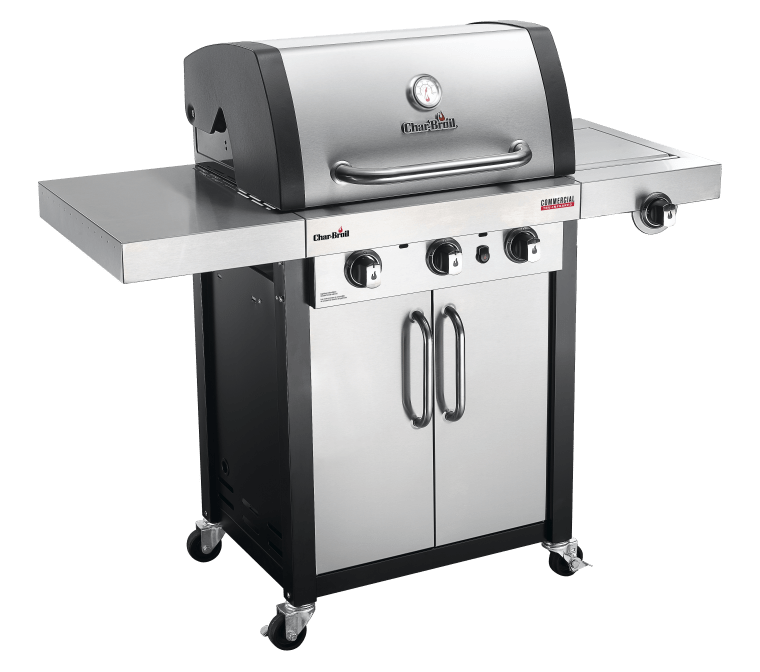
“Gas grills can be more popular because of the benefit of not having to position and light your charcoal,” explained Rada. “But they can also be more dangerous if not handled correctly.”
Gas grills account for about 84% of grill fires local fire departments responded to annually. Before you start grilling, it's important to understand how your particular device works, so read the manual and watch any online instruction videos before you light up.
2. Keep the lid open when lighting
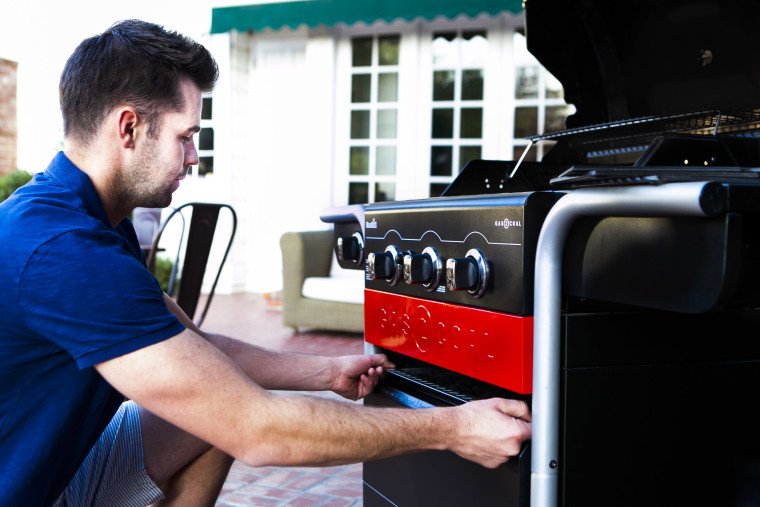
Rada cautioned against leaving your grill lid closed when you light your gas grill because that could allow the gas to pool and potentially explode. "That wouldn't be awesome," she said.
Nope, it definitely wouldn't be.
3. Check for gas leaks with the bubble test
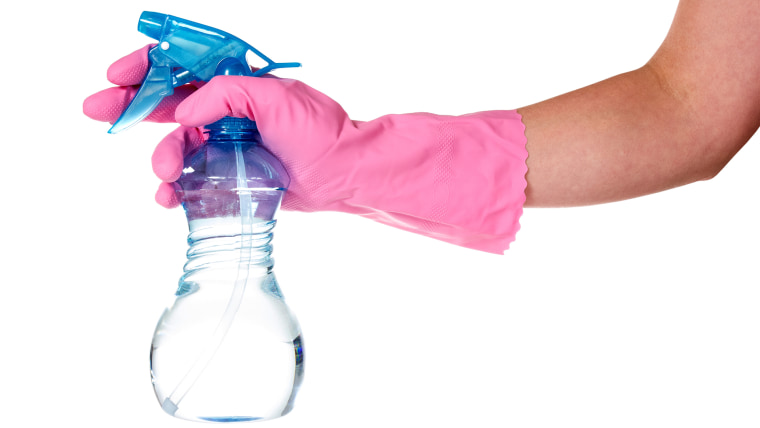
“Another thing to look out for is gas leaks," Rada noted. “An easy way to check for that is taking equal parts soap and equal parts water and brushing or spraying it through the gas connection or hose, while the gas is off. Then, turn on the gas tank valve only.
"Before lighting it, see if any soap bubbles form. If they don’t, you’re good to grill. If you see bubbles, turn off the gas immediately and replace the broken grill part.”
4. Give your grill plenty of room
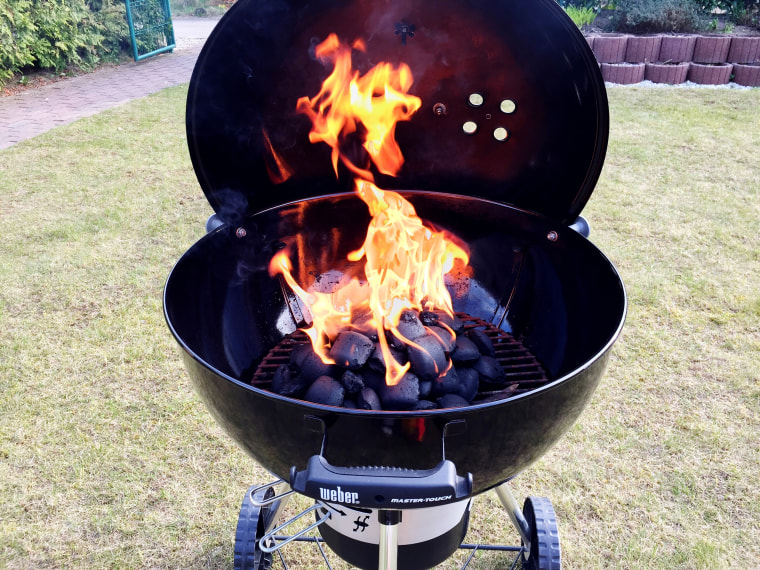
Always make sure your grill — whether it’s charcoal or gas — is at least 10 feet away from any structures or large plants. While trees can provide shade, they’re also not safe to grill around. It’s very easy, especially on a windy day, for overhanging branches to ignite.
“Basically, it’s general bonfire rules,” said Rada, adding that you also want to keep kids and pets in mind when deciding where to set up your grill and where to dispose of your cinders.
Take note of the busiest spots in your backyard and avoid setting up your grill station nearby.
5. Rust is a red flag
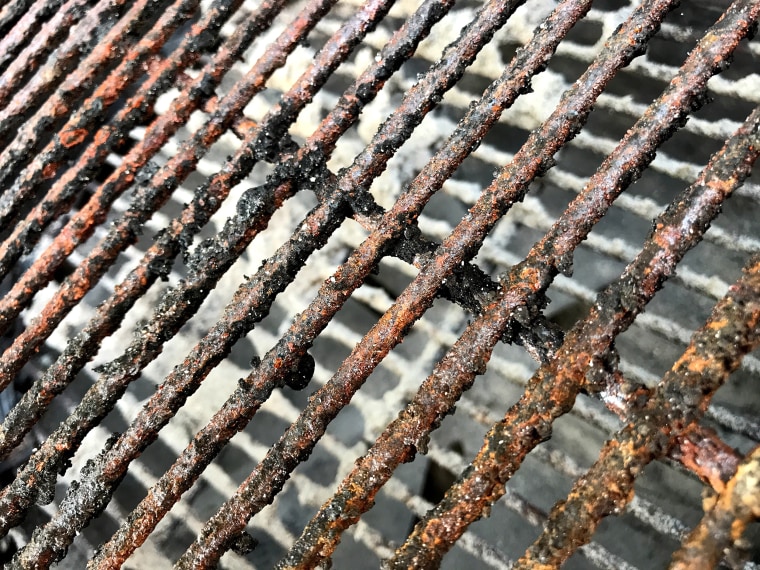
Rada cited rust as a top indicator that you’re not maintaining your grill properly. A buildup of rust can prevent the grill’s grates from heating evenly. Rust may also inhibit your ability to cook meats thoroughly.
“Plus, rust can attach itself to your food, and it’s not something you really want to ingest,” she added. If your grill is rusty, take these few steps to clean it prior to firing it up.
6. A meat thermometer is a must
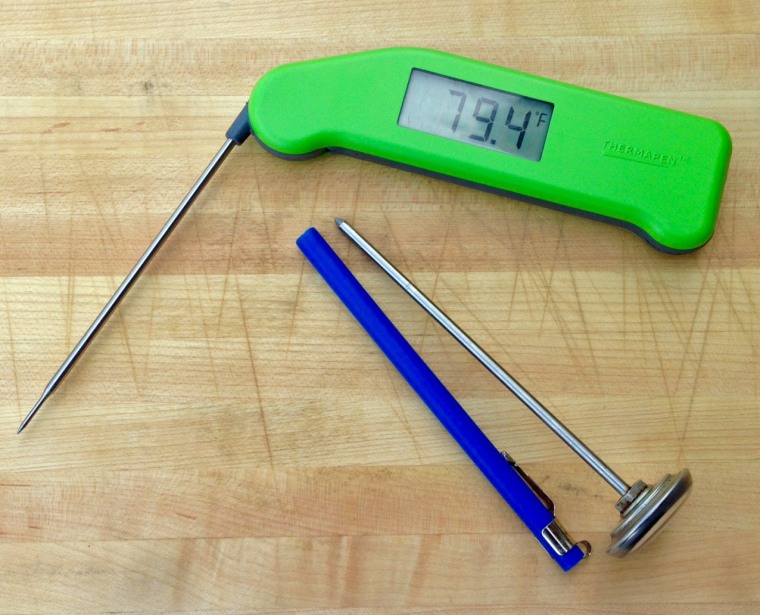
In addition to tongs and a grill brush, Rada never (under any circumstances) grills without a meat thermometer.
“Meat thermometers are the easiest way to ensure that the things you’re cooking are at the right temperature,” she said. “In terms of sanitation, it wouldn’t hurt to have more than one if you’re cooking with more than one type of meat — one for your chicken and one for your steak.”
Today, there are plenty of different types of meat thermometers on the market, including ones with lasers that you can just point at your meat. But Rada cautions against going too high-tech with such an important kitchen tool. She uses a basic thermometer and recommends it for most home grillers. “Anything you can poke in and get a sense of the temperature will do the trick," she said.


